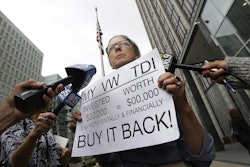What’s the use of use tax?
5 tips for consumer use tax compliance
Overlooked, underestimated and under
the radar. That’s the best way to describe
consumer use tax. The less popular cousin of
sales tax, consumer use tax is one of the most
mismanaged compliance issues. That’s because
most people don’t know what it is, never mind
how to comply with it. But ignorance isn’t bliss.
In fact, mismanaging use tax ranks in the top
five for costliest compliance mistakes made by
companies, according to accounting and tax
consulting firm Peisner Johnson.
$
5 Use Tax Tips © Avalara 2015. Page 1
Following these five simple rules can keep you in compliance
and out of trouble:
Tip 1: Buyers be-aware
So what exactly is use tax and how does it differ from sales tax? With sales tax, the seller collects
sales tax from the buyer and remits it to the taxing authority. But if the seller doesn’t collect sales
tax, what then? That’s where consumer use tax comes into play. Tax is still owed on the transac-
tion, but now responsibility shifts to the buyer to pay it. Simply put: sales tax is collected by the
merchant on taxable items they sell; consumers’ use tax is paid by the buyer on taxable items they
purchase. The rate for use tax is generally the same as sales tax and is based on the rate for the tax
jurisdiction where the item was received or consumed. The buyer can be an individual or a busi-
ness. For individuals, use tax compliance is much harder for a jurisdiction to enforce. It’s basically
an honor system – a reported line item on annual income tax returns. Businesses face much more
scrutiny and typically have stricter reporting rules and are more likely to be audited for use tax.
Tip 2: The Internet isn’t a tax-free zone
You purchase something online. The seller doesn’t attach sales tax. So it’s tax free, right? Wrong.
Most ecommerce sellers only collect sales tax in states where they have nexus – a physical location
or “connection” based on business activities that requires them to register and remit tax in that
state. Catalog sales are similar. Often there’s a line item on the order form that says, “Add sales tax
if shipped to…” followed by a list of states. Those are locations where the seller is registered and
required to collect sales tax. So if you aren’t charged sales tax by an online or catalog retailer, that
doesn’t mean the transaction is tax free. It just means that now the burden is with the buyer to pay
use tax. But few do. This is why federal legislation like the Marketplace Fairness Act and the Remote
Transaction Parity Act have been gaining momentum and why some states have passed remote
seller nexus laws to try and fill these gaps and shift the responsibility of remitting sales tax solely
onto sellers.
Tip 3: Use it, you lose it (the exemption that is)
Use tax is trickier for companies. How you “consume” certain items in your business is often the
determining factor. Common triggers include:
» Inventory transfers
» Promotional giveaways
» Charitable donations
» Fixed assets purchasing
If these items were intended for resale and you didn’t pay sales tax at the time of purchase, then
you are now obligated to pay use tax. Or, if you bought equipment or furniture for your office and
then moved locations, and the tax rate is higher in the new location, then you may owe the differ-
!
$0 0 0
5 Use Tax TipsPage 2
Get Started.
To learn more about pricing,
view online demonstrations,
or chat about AvaTax’s
capabilities, visit:
www.avalara.com
or call
877.780.4848 today.
About Avalara
A privately held company, Avalara was founded by a team of tax and software industry veterans to fulfill a vision of delivering an affordable, scalable sales tax
solution. Thus making what was not economically feasible in the past for mid-sized business not only affordable, but more accurate as well — all with the latest and
most innovative technology available. From Bainbridge Island, close to Seattle, Avalara’s knowledgeable staff works tirelessly to help customers put the hassles of
sales tax compliance out of mind. Avalara’s mission is to transform the tax process for customers by creating cost-effective state-of-the-art solutions. The company
does so through integrated on-demand, Web-based software services that provide transparent transactions, accurate tax compliance, painless administration
and effortless reporting.
ence in use tax. This is where most auditors spend their time – checking that expenses, fixed assets and in-
ventory transfers have been properly taxed. It’s also where most mistakes occur. State auditors say use tax
errors are the number one audit risk and the bulk of assessments come from use tax not being paid. Certain
industries like manufacturing, construction and hospitality face even greater risks because the use tax rules
for these businesses are more complex and aren’t always consistent from state to state.
Tip 4: Step up your game
Ultimately, you are responsible for ensuring you handle sales and use tax correctly. Don’t assume your
vendors are doing it right. Check invoices carefully. If the sale is exempt, reference a valid resale or exemp-
tion certificate. Be diligent in your purchasing processes. Verify tax rates are correct. Compares tax on the
purchase order to tax on the invoice. Are they the same? Be sure expense reports include sales tax for any
taxable transactions. These are all areas where auditors find mistakes. They’re likely to zero in on invoices
that don’t show sales tax and ask you to supply a valid exemption certificate or proof that you paid use tax.
Be ready!
REV 121615
Tip 5: Automate
Tax compliance is tricky and time consuming. Having a tax automation solution in place
can eliminate a lot of compliance and audit headaches for sales and use tax. For example,
Avalara AvaTax is a cloud-based software that requires only a simple integration to the
billing systems you already use in your business. With AvaTax connected to your invoic-
ing system, Avalara’s powerful calculation engine and precise geolocation technology
determine the exact right rate to apply to every transaction and flows that data directly
through to your tax returns. This minimizes exposure and creates an auditable data trail
for all your taxable and exempt transactions. Avalara’s software can even help you man-
age exempt sales and documentation.
Did you find these five tips “use-ful”? Let us know!
5 Tips For Consumer Use Tax Complaince
Overlooked, underestimated and under the radar. That is the best way to describe consumer use tax. The less popular cousin of sales tax, consumer use tax is one of the most mismanaged compliance issues. That’s because most people don’t know what it is, never mind how to comply with it. But ignorance is not bliss. In fact, mismanaging use tax ranks in the top five for costliest compliance mistakes made by companies. Following these five simple rules can keep you in compliance and out of trouble.
Latest in Home
Regional Manufacturing: The Future of a Resilient Industry
September 16, 2025
NHTSA Investigating Tesla Door Handles That Could Trap Passengers
September 16, 2025
Ford to Cut Up to 1,000 Jobs at German Plant as EV Demand Lags
September 16, 2025






















